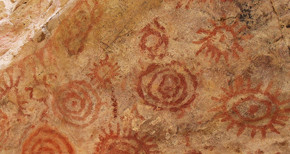The SAA Releases Statement on Climate Change and Cultural Heritage
This Earth Day, in response to the need to protect the archaeological record from the effects of climate change, the SAA’s Committee on Climate Change Strategies and Archaeological Resources has released the “SAA Statement on Climate Change and Cultural Heritage,” giving the archaeology community and other stakeholders a grounding in the impact of climate change on cultural heritage and practicable actions archaeologists can take to address the effects of climate change on our field.
Society for American Archaeology Statement on Climate Change and Cultural Heritage
I. Preamble
The Society for American Archaeology (SAA) recognizes the accelerating loss of cultural heritage to the impacts of climate change. Beyond the damage to or complete loss of archaeological sites and scientific knowledge, climate change threatens environments and economies, many of which have critical linkages to cultural heritage resources that inform community identity, economy, sense of place, and history. We offer this statement as one of high priority for archaeologists, community partners, relevant regulatory agencies, and local, state, and federal governments.
Climate change–related impacts correspond to archaeology’s long-standing goal of understanding the complex relationships between human societies and the environment, including those of short- and long-term climate change. Cultural resources and their associated cultural value and scientific information are being rapidly damaged or destroyed by the environmental impacts of climate change, including temperatures, increases in sea level, ocean acidity, severe weather frequency, forest fires, erosion, permafrost thawing, and mass wasting. The practice of archaeology is changing in response to climate change, including work environments and methods. Interdisciplinary collaborations are crucial to our understanding of past human responses to and resilience in the face of climate change.
- Archaeologists should work to identify the types and magnitude of threats that climate change poses to cultural heritage, including archaeological resources.
- Archaeologists should work to document, preserve, or mitigate against the loss of cultural heritage due to climate change impacts and aid in the transmission of cultural knowledge, tradition, and sovereignty.
- Archaeologists should create prioritization models for cultural resources in collaboration with communities impacted by climate change, including those historically underserved and underrepresented.
- Archaeologists should engage in public outreach and work with educators to emphasize that immediate threats to cultural resources have long-term consequences for community well-being and scientific knowledge.
- Archaeologists should communicate to other scientific, professional, policy-making, and stakeholder communities the relevance and value of cultural resources to address climate change.
- Archaeologists should develop and deploy new methods, including field adaptation, mitigation strategies, and/or digital preservation, to lessen impacts to archaeological sites and landscapes and the associated loss of cultural and scientific information.
- Archaeologists should encourage the development of curation and conservation policies to address the potential increase in materials from rapidly deteriorating sites and work with curatorial specialists for long term management of excavated materials and associated archives.
- Archaeologists should work to ensure that regulatory policies, which involve green initiatives and infrastructure packages in the name of climate emergency actions, properly assess and foreground cultural resources.
- Archaeologists should advocate for funding and legislative actions for the prioritization, documentation, and mitigation of cultural heritage resources affected by climate change.
- The SAA encourages production of a range of outcomes including scholarly papers, policy reports, and public resources such as press releases and digital materials on climate change impacts to cultural resources.
- The SAA encourages the Committee on Climate Change Strategies and Archaeological Resources and other SAA committees to collaborate in integrating climate change advocacy and education throughout the work of the organization.



